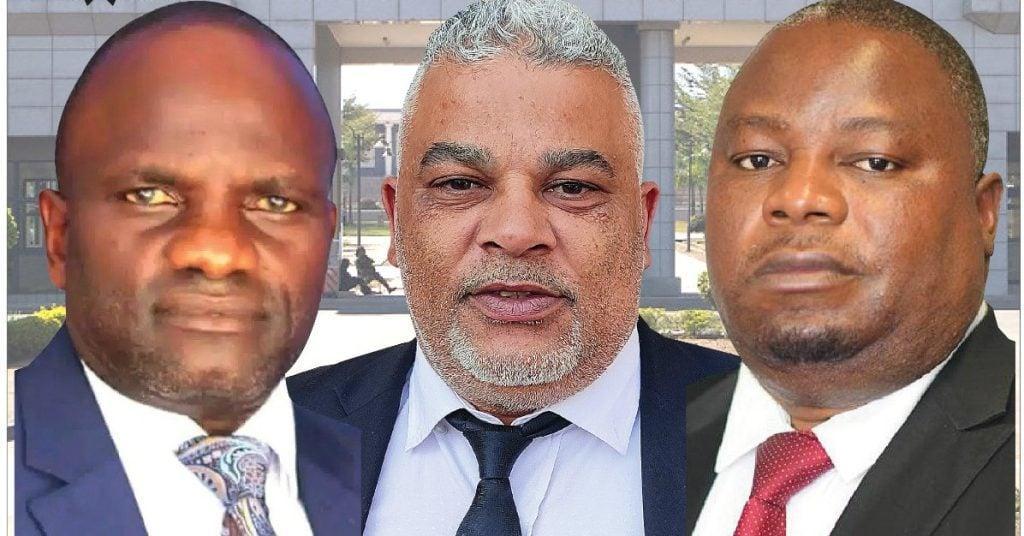By nyasatimes
Africa-Press – Malawi. When Malawi’s Members of Parliament cast their votes for the next Speaker, they won’t just be choosing who holds the gavel — they’ll be defining what kind of democracy Malawi wants to be. Will the Speaker be a true referee of the House, enforcing rules with fairness and courage, or a party agent hiding behind the mask of procedure? History has shown that the Speaker’s chair can either elevate Parliament into a beacon of accountability or reduce it to an echo chamber of executive power. The question, therefore, is not about experience or eloquence, but about moral spine — who among the contenders has the courage to defy their party when the Constitution demands it?
Two former Speakers, Louis Chimango and Henry Chimunthu Banda, have issued a stark reminder to MPs ahead of the election: the office demands independence. Chimango, who served from 2005 to 2009, emphasized that the Speaker must act according to the law and the will of Malawians, not the wishes of political masters. Chimunthu Banda, in office from 2009 to 2014, added that balancing party pressures with House rules is a delicate, often dangerous task.
“Sometimes the Government side may push for its interests over House rules. However, the Speaker must act as a non-partisan arbiter, enforce rules impartially, even if it displeases their party,” Chimunthu Banda warned.
The lesson is clear: the Speaker’s strength is tested most when powerful interests push for self-serving agendas. Malawi cannot afford a Speaker who bows to political convenience — not when oversight, accountability, and the very dignity of Parliament hang in the balance.
Socio-political commentator Undule Mwakasungula echoes this sentiment. He stresses that the Speaker must be mature, politically attuned, and unwavering in fairness. “Parliament is the heart of democracy. The Speaker’s impartiality will be key in the next five years. They must encourage debates on laws that address the hardships Malawians face,” Mwakasungula said.
Among the contenders, promises of impartiality are abundant, but track records speak louder than pledges. Sameer Suleman, known for his fiery and confrontational style in Parliament, insists that his militant past was strategic, not personal. He vows to temper that intensity with fairness if elected Speaker.
“That position demands impartiality and fairness to all members of the House. Every person should know when and how to control themselves. That seat demands calm and fairness,” Suleman said, adding that he intends to lead a Parliament focused on oversight and accountability, guided by his anointment from President Peter Mutharika.
Kondwani Nankhumwa, the sole MP for the newly formed People’s Democratic Party (PDP), claims his independence gives him a unique advantage. “Without a political majority to defend or a partisan agenda to promote, I am free to uphold the rules of the House and protect the rights of all members,” he stated.
George Katunga Million, an independent MP, frames his candidacy around non-partisanship. “Out of all the other contenders, I am the best suited for the position. Partiality starts from the party. I will be the best referee as I will be getting no orders from any party,” Million said.
The warnings from former Speakers are clear: legal knowledge alone does not make a Speaker; parliamentary experience helps, but the defining qualities are courage, impartiality, and the ability to withstand political pressure. Malawi has often seen Speakers falter under the weight of party expectations — and the next election is another test of whether the gavel belongs to the Constitution or the party.
The stakes could not be higher. The Speaker will preside over debates on laws that affect everything from corruption and governance to public accountability and citizens’ daily hardships. The winner will either safeguard the integrity of the House or allow Parliament to become a partisan instrument.
When MPs vote on Wednesday, they are not merely filling a ceremonial position. They are deciding whether Malawi’s Parliament will be a house of principle — or a pawn of party politics. The nation will be watching, and history will remember who chose courage over convenience.
Source: Malawi Nyasa Times
For More News And Analysis About Malawi Follow Africa-Press






